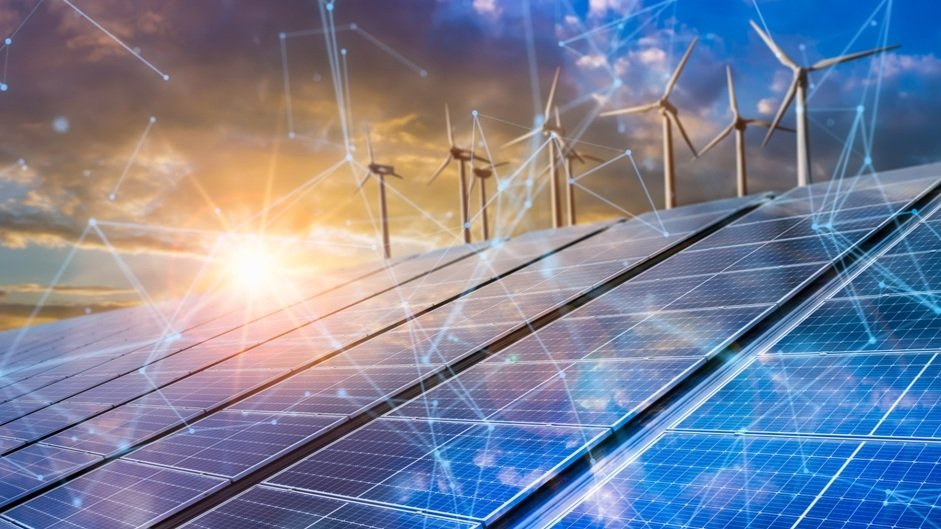The rapid growth of energy sources, like solar and wind is essential, for building an eco friendly future. Yet the unpredictable nature of these energy sources poses challenges in ensuring an effective power supply.
This is where the role of renewable energy storage systems becomes crucial. By storing surplus energy produced during peak periods and releasing it when production is low or demand is energy storage significantly boosts the effectiveness of renewable energy setups.
This piece delves into how renewable energy storage. can optimize the use of energy and strengthen the resilience of our power grid.
How Energy Storage Can Enhance the Efficiency of Renewable Energy Systems?
Here’s How Energy Storage Can Boost the Efficiency of Renewable Energy Systems.
- Addressing the Intermittency of Renewable Energy Sources
One of the issues, with energy systems is their reliance on natural conditions. Solar panels only generate power during days while wind turbines produce electricity when theres wind. This inconsistency can result in energy during low demand times and shortages during demand periods.
To address this challenge, energy storage technologies, like batteries pumped hydro and thermal storage play a role. These systems store excess energy produced during high generation times. Release it when production is low ensuring an dependable power source.
- Reducing Energy Wastage and Maximising Resource Utilisation
Without storage systems, excess energy generated by renewable sources during periods of low demand is often wasted. For example, during sunny days with low electricity demand, solar panels may produce more energy than the grid can accommodate, leading to curtailment, where some of the energy is not used and is effectively wasted.
Renewable energy storage systems prevent this wastage by capturing and storing the excess energy for later use. This ability to store and deploy energy as needed ensures that renewable energy resources are used to their fullest potential, maximising the return on investment in renewable energy infrastructure.
- Enhancing Grid Stability and Reducing Reliance on Fossil Fuels
Integrating renewable energy into the grid without storage can lead to grid instability due to the intermittent nature of these energy sources. Sudden drops in solar or wind power can cause fluctuations in voltage and frequency, potentially leading to grid imbalances and outages.
Renewable energy storage systems play a crucial role in maintaining grid stability by providing a buffer against these fluctuations. During periods of high renewable energy generation, storage systems absorb excess power, and during periods of low generation, they discharge stored energy to balance supply and demand. This capability reduces the need for backup power from fossil fuel-based power plants, further decreasing carbon emissions and reliance on non-renewable energy sources.
- Enabling Energy Independence and Resilience
Renewable energy storage systems also contribute to energy independence and resilience, especially in remote or off-grid areas. In regions with limited access to centralised power grids, renewable energy systems combined with storage can provide a reliable and independent power supply. This setup reduces reliance on imported fuels and enhances energy security.
In the event of natural disasters or grid failures, energy storage systems can act as backup power sources, ensuring continuous electricity supply to critical infrastructure such as hospitals, communication networks, and emergency services.
- Facilitating the Transition to a Decentralised Energy Grid
The integration of renewable energy storage is also a key enabler of the transition to a decentralised energy grid, where power generation occurs closer to the point of consumption. Decentralised grids, supported by local renewable energy generation and storage, reduce transmission losses, improve energy efficiency, and empower communities to take control of their energy needs.
Storage systems support the growth of microgrids and community-based energy solutions by enabling the storage and management of locally generated renewable energy.
Conclusion
Renewable energy storage systems are essential for enhancing the efficiency, reliability, and resilience of renewable energy systems. By addressing the intermittency of renewable sources, reducing energy wastage, and stabilising the grid, storage systems maximise the potential of renewable energy and facilitate the transition to a low-carbon energy system. As technology advances and storage costs continue to decrease, renewable energy storage will play an increasingly critical role in achieving a sustainable and resilient energy future.




